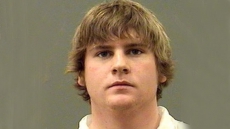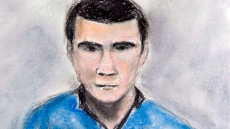TORONTO - Twenty-five years ago this month, the medical world was turned on its ear with the isolation of the gene that causes cystic fibrosis, a devastating inherited disease that usually killed children by their late teens.
At the helm of the research was Lap-Chee Tsui, who led the team at Toronto's Hospital for Sick Children that made the seminal discovery in collaboration with scientists at the University of Michigan.
The science of human genetics was still in its infancy at that time. Pinpointing the mutated CFTR gene came about through painstaking mapping of bits of DNA to locate the root of CF symptoms — thick, sticky mucus that clogs the lungs and gums up the gastrointestinal tract, requiring patients to take scores of digestive enzymes a day so they could digest food.
"The cystic fibrosis defect is really a very subtle defect," Tsui (pronounced Choy), 63, said Monday during an event at Sick Kids to mark the 1989 discovery. "It didn't kill the patients (right away), but the problems accumulated slowly, and at the end the patients succumbed to infection."
Using the same analogy as he used in 1989 to explain CFTR's location on chromosome 7, Tsui said researchers first narrowed it down to somewhere between Halifax and Vancouver, then further pinpointed it in Toronto, and finally zeroed in to a certain street and then the actual house that represented the defective gene.
In the ensuing years, researchers have determined there is not only one mutation in the CF gene, but about 1,900 different defects that cause greater or lesser severity of symptoms in individual patients — a scientific process Tsui likened to going into the house and turning on all the lights and taps to see which ones are faulty.
The celebrated geneticist, who left Toronto 12 years ago to become vice-chancellor and president of the University of Hong Kong, from which he just retired, called progress in understanding and treating CF since the gene was isolated "very exciting."
Within two years of that discovery, other Sick Kids researchers had determined that a protein that keeps epithelial cells lining the lungs, airways and digestive system "nice and moist" was faulty, causing the buildup of mucus that clogs the lungs and disables the digestive system.
"I think the expectation when the gene was first discovered was that it would be easy to fix because the disease was caused by a single gene, and if you replaced that gene through gene therapy, then you would be able to completely reverse the consequences of the disease," said senior scientist Christine Bear, who led that team.
"And it may be that gene therapy will be part of that future therapy in CF, but right now we haven't developed safe ways to do that."
As more was learned about the CF gene, scientists began looking for new drugs to treat symptoms. But it became clear that they would need to specifically target the different mutations.
One such drug, called Kalydeco, is effective in easing symptoms for some among the four per cent of CF patients who carry a particular mutation — known as G551D — but on its own the medication is ineffective in treating the 90 per cent of those with the most common defect in CFTR, called Delta F508.
"So it's clear that it's not going to be a single-bullet approach to therapies for CF, like most diseases," said Bear. "Not everybody's going to be responsive in the same way, so we need to define better compounds and also be prepared to find multiple compounds so you can figure out which compound will work best on which patient."
To that end, researchers at the hospital have begun growing lung stem cells from a few CF patients, which are being exposed in the lab to a wide array of potential drugs to see if any help restore normal function.
"Eventually, we will have a system where you could test 100 patients all with their own lung cells to see which compound is going to work best," said Bear, pointing out that such personalized medicine is the wave of the future.
Dr. Felix Ratjen, chief of respirology and co-director of the hospital's CF Centre, said the gene's discovery laid the foundation for the progress made in understanding the biology behind CF and subsequent drug development.
But since its identification, symptom management has also taken great bounds forward, to the point where life expectancy for a Canadian born with CF is now in the mid-40s, in part thanks to multidisciplinary specialists who address various aspects of the disease in patients.
"In the past, as I look back 25 years, we had a lot of children dying of cystic fibrosis on our wards," said Ratjen, who recalls the eureka announcement of the gene's discovery and the hope that sprang from it. "And now that is fortunately a rare event. It still happens, but it has really changed.
"The whole picture of the severity of the disease has really changed."
For Melissa Benoit, the strides made since the gene was found have already helped her live far beyond the age predicted when she was diagnosed with CF 12 hours after her birth.
"I'm 30 years old, which is kind of a milestone for having CF," she said from her Burlington, Ont., home.
Still, the pediatric nurse who is married and has a six-month-old daughter, said managing CF is "like having another full-time job — because if I don't take care of myself and my CF, I'm not going to be around for my child and my husband and to do any of the things I love."
Benoit, who took part in CF research as a child and continues as an adult, has daily physiotherapy, gets thrice-daily inhaled medications through a mask and takes upwards of 60 pills a day, including digestive enzymes and antibiotics to prevent lung-scarring infections that could require a transplant or lead to death.
"I've got to be doing something right and the research has got to be doing something right," she said. "I work very hard at it."
Her doctors have predicted Benoit will have a "pretty long life" if she continues to stay on top of her therapy. While getting to age 80 doesn't look likely, living "hopefully into my 50s would be nice," she said.
"The research has made incredible progress and I think it shows by the increasing median life expectancy. But I think we still have a long way to go. And I really hope that that research can continue and that funding for research can continue, so that one day I will be able to live with CF and not die from it."






